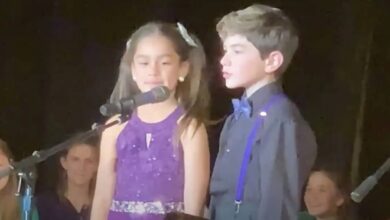The Charm of Patsy Cline Shines in “Crazy”
“Crazy” stands as a timeless ballad that resonates with anyone who has loved deeply, reflecting the complexities of unrequited love and yearning. Its poignancy is matched by its melodic beauty, traits that make it a perennial favorite among listeners and artists alike. The song’s roots trace back to Willie Nelson, a prolific songwriter whose influence has permeated the landscape of country music. Nelson’s ability to convey deep emotions through simple yet powerful lyrics is showcased in “Crazy,” which he originally intended for his own musical catalog.
Willie Nelson experienced a transformative phase in the early 1960s when he was evolving from a struggling honky-tonk performer to a significant figure in the songwriting community. His compositions began to capture the hearts of many, but it was “Crazy” that arguably marked a pivotal moment in his career. Although he didn’t achieve initial success with the song, Nelson’s faith in its emotional depth would soon be validated through the voice of another—Patsy Cline.
Patsy Cline’s rendition of “Crazy” is characterized by her unique vocal style that seamlessly blends vulnerability with a robust emotional presence. Cline’s ability to convey the song’s sense of longing has made her version iconic. Her interpretation elevates the lyrics to new heights, transforming them into a universal expression of heartache. The lush orchestration accompanying her voice, which combines strings and piano, creates an enchanting soundscape that perfectly complements the song’s themes of love and yearning.
Despite its eventual success, the path to the song’s release was not without obstacles. Initially, the song did not resonate with record executives, some of whom were doubtful about its appeal in the competitive music industry. Yet, commitment from both Cline and her producer ultimately led to it being recorded and released. Once it reached the public, “Crazy” went on to inhale the airwaves, making significant impacts on both country and pop charts and redefining Cline’s trajectory as a leading voice in American music.
The tragic circumstances of Cline’s life—her untimely death in a plane crash at just 30 years old—added an indelible layer of emotion and nostalgia surrounding “Crazy.” While she didn’t live to see the full effect of her music, her legacy has become synonymous with the song. It symbolizes not only her voice but the fleeting nature of fame and personal experience, capturing the collective heartache of a generation that mourned both the artist and the loss of opportunities.
Willie Nelson later returned to “Crazy,” recording his own rendition that showcased the song’s adaptability. His laid-back, conversational style introduced a different emotional nuance to the piece, illustrating how versatile it is across different interpretations. The contrasting versions by Nelson and Cline highlight the strength of “Crazy” as a composition, allowing it to be reinterpreted while maintaining its core emotionality.
Many artists from various genres have since covered “Crazy,” including those from pop, rock, and jazz. This expansive interpretive history speaks to the song’s ability to resonate across musical landscapes, as every artist adds their unique flavor while upholding the song’s emotional weight. For instance, Linda Ronstadt and Diana Krall brought their interpretations to the forefront, revealing the myriad ways that “Crazy” can evoke feelings of love and loss. Each rendition offers a fresh perspective, demonstrating the song’s timeless appeal and universality.
In today’s music scene, “Crazy” continues to be featured prominently in movies, television shows, and live performances, ensuring its relevance to new audiences. Aspiring artists often include the song in their repertoires, not just as a test of their vocal prowess but also as a means to connect emotionally with their audience. The song’s lasting legacy means that its haunting melody and heartfelt lyrics will linger in the hearts and minds of generations to come.
Moreover, “Crazy” stands as a touchstone in the storytelling fabric of country music. It is emblematic of the genre’s strength in addressing complex emotions and experiences. Through its rich narrative and emotional depth, “Crazy” affirms the notion that country music can articulate profound human experiences with an authenticity that is both relatable and deeply impactful.
Ultimately, “Crazy” is more than a song; it is an enduring narrative that captures the essence of love and loss. It transcends time and place, reflecting a shared human experience that unites listeners from varied backgrounds. As it continues to be reinterpreted and celebrated, “Crazy” solidifies its role in the annals of musical history as a profound expression of the complexity of human emotions. It serves as a reminder of the power of music to echo across time, resonating with those who dare to experience its depths.





